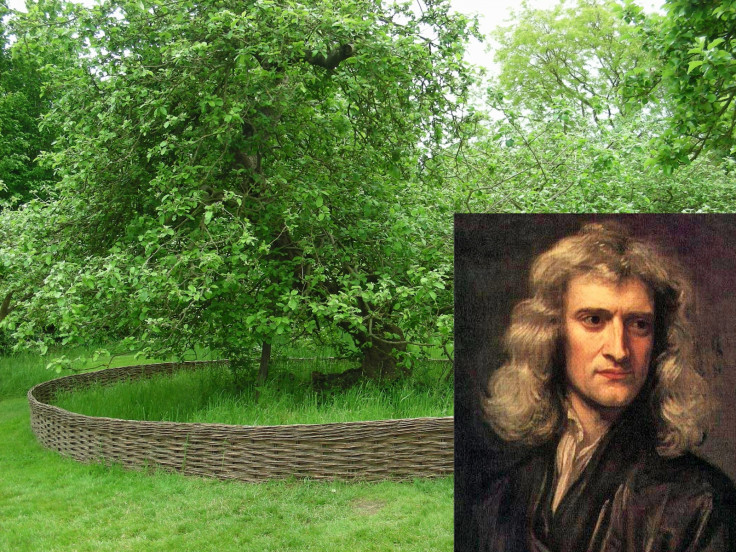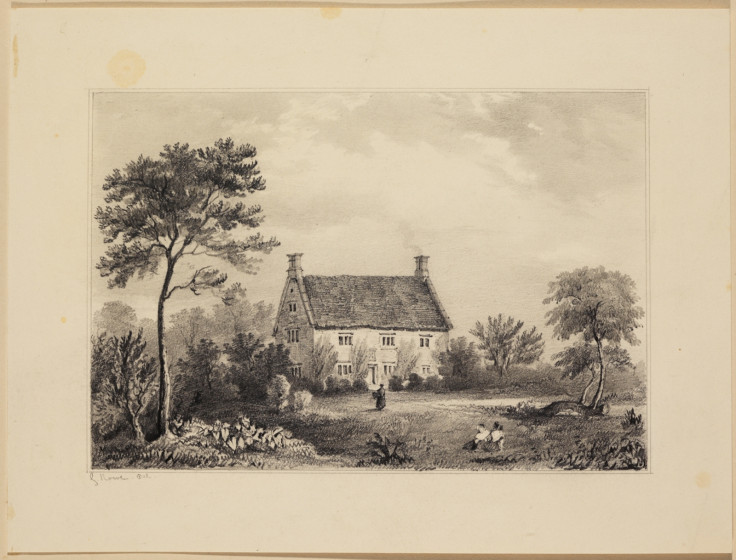Seeds from apple tree that inspired Isaac Newton's theory of gravity planted across UK
Thirty UK science centres and museums hope to grow seeds into nation-wide apple orchard.

Seeds from the apple tree that led Isaac Newton to develop his theory of gravity are being planted at science centres and museums across the UK. The project, it is hoped, will result in a country-wide apple orchard originating from the tree at National Trust's Woolsthorpe Manor in Lincolnshire – Newton's birthplace and family home.
The tree under which Newton was sitting when the apple fell on his head is still alive today. The project to plant its seeds is to mark the launch of the first UNESCO International Science Centres and Science Museum Day. The day is held to celebrate how science museums and centres inspire young people and families.
One of the centres involved is the Royal Society, where Newton served as president. Keith Moore, librarian at the institution, said: "We're very excited to be taking part in this wonderful project. It will bring to life – literally - a key anecdote in the history of science with the propagation of Newton's famous apple tree at science centres across the UK. Isaac Newton remains one of the most famous scientists the world has ever known and his apple tree has a popular significance in marking his eureka moment in formulating the Universal Law of Gravitation."
William Stukeley, one of Newton's friends and fellow scientists, recorded the moment the apple fell from the tree in his 1752 biography Memoirs of Sir Isaac Newton's Life. A copy of the book is held in the Royal Society's archives and can be viewed online here.
The text reads: "He told me, he was just in the same situation, as when formerly, the notion of gravitation came into his mind. Why sh[oul]d that apple always descend perpendicularly to the ground, thought he to himself; occasion'd by the fall of an apple, as he sat in a contemplative mood..."

Other centres involved include London's Science Museum, the Eden Project, the Wellcome Trust, The Royal Astronomical Society and the Royal Observatories in London and Edinburgh. Seeds from the tree made headlines in recent years after being sent to the International Space Station with British astronaut Tim Peake.
.@jen_gupta @Gravityfields @dallascampbell @jackshebang Fantastic-hoping to do the same with seeds from Newton's apple tree flown in space!
— Tim Peake (@astro_timpeake) March 27, 2015
Jannette Warrener, Operations Manager for Woolsthorpe Manor, said: "Pips from the tree are currently in space on the International Space Centre, originally sent up with Tim Peake as part of his 'Principia' mission. They have certainly travelled far and wide.
"I'm delighted to share apple pips with other amazing sites for science across the country and hope that the project will engage young people with the fascinating story of Newton. He truly shaped modern scientific thinking here at Woolsthorpe when he worked on his theory of gravity and also explored light and calculus."
Penny Fidler, CEO of The UK Association for Science and Discovery Centres, which made the project possible, said: "As a nation and a global society we have some major challenges ahead that will take scientific creativity and entrepreneurship to solve. Science Centres and Museums are at the heart of bringing the latest science to the public across the UK and helping children and adults to get involved with science in a hands-on and inspirational way, building the skills we need to create a better world for the future."
© Copyright IBTimes 2024. All rights reserved.







